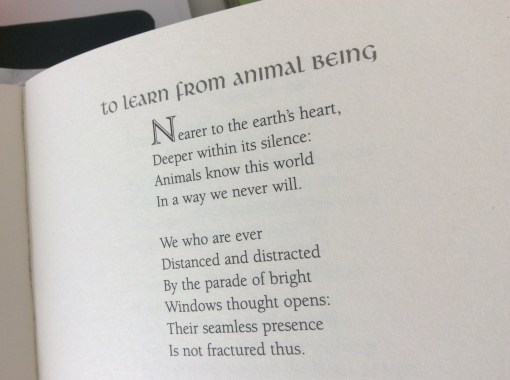What the horse knows: Life Lesson No: 9

Horses know how to worry. As highly sensitive flight animals, worry is part of being alive and aware and can be seen as beneficial. An exquisite awareness of danger is part of every flight animal’s existence. The more highly attuned, the more potential danger the animal senses. Growing up, Dragonfly, who is as highly strung as a rare violin, worried about birds twittering unexpectedly in hedges, bouncing balls, unpredictable gusts of wind, white lines on the road. One time leading him in from his field he encountered a feral cat eating from his feed bowl and his legs buckled underneath him in fear.
Dragonfly’s worry was his way of meeting the unexpected. His hair-trigger reactivity meant that I had to be careful around him. I couldn’t be brusque or rush him or forget to take his feelings into consideration. I couldn’t make assumptions. I couldn’t expect him to ‘just get over it,’ either. I had to learn to read him and that meant taking his state of mind into consideration at all times. It meant taking him to places with ‘freaky’ stuff just so he could learn that he could handle buses, flyovers, farm traffic, road signs, ice, fallen trees, bogs, deer, umbrellas, bicycles, dogs, children in pushchairs, everyday sights in our crammed, colourful human world.
Over the years, Dragonfly matured from an anxious young colt into a gentle, soft and willing horse who remains highly sensitive. One some days, he gets into a state over something, which seems small to a human mind. He doesn’t like to be separated from his herd members, and frets when he can’t see the ponies. Wind still agitates him. Bicycles, buses and other big traffic he takes in his stride.
What he has learned is to rely on is his own steadiness. He has learned that when he perceives something dangerous, there is another option besides fear. He has learned that he doesn’t have to listen to his superficial thinking because there is a deeper understanding within. This is a remarkable life lesson.
A worry-free life is impossible. Life without fear or danger would not be life as we know it, and would be strange, featureless and bland. A certain amount of danger keeps us awake and sharp. Nevertheless, we tend to want to eliminate danger because we blame an escalation of threat for our state of worry. We tend to forget that our feelings of worry come not from circumstances but from our own thinking. Sports coach Garret Kramer, explores this in his fascinating and insightful book The Path of No Resistance.
“A key difference between steadiness and inconsistency is that steady people become still and then find another option when they sense danger. Inconsistent people try to exhibit strength by plowing through it.’
Dragonfly used to try to force his way through his fears. Memorably we parted company once when schooling and I hit the ground so hard I couldn’t walk the next day. I wondered then whether he would become a ‘neurotic’ horse. It’s easy to see how horses and people with a tendency to worry acquire unhelpful labels that become defining. As Dragonfly grew up, he learned how to be more consistent and how to rely more on his inner sense. He learned self-reliance, resilience and steadiness.
Dragonfly learned that given time his fretful mind will self-correct. He learned that he could bring himself back into balance. His fearful feelings did not mean that he had to run or throw himself onto the ground. He did not have to react to everything he sensed or felt or imagined. His feelings meant that he had to wait for stillness and steadiness to return. This is mature practical wisdom in action and a true source of inspiration.
